03. HOMES FOR THE AGED, TERMINALLY ILL, PHYSICALLY CHALLENGED
Homes for the Aged - Gudiyatham
We believe that caring for the elderly means striving for excellence through optimum nursing care and a friendly, loving environment. We provide them with a homelike atmosphere. We believe in caring for our senior citizens by providing them with many activities to maintain cognitive skills and opportunities for socialization, a clean and cheerful environment, with opportunities for spiritual enhancement and counseling. The religious services allow them to continue to be devoted to God. Recreation therapy is widely used and it brings a lot of joy and fulfillment to the lives of the elderly. Every effort is made by us to provide the elders with a comfortable, safe and dignified life during the evening of their lives. Regular medical checkup is conducted here. Our mission is to provide a loving and spiritual community for older adults to live lives of caring and wholeness inspired by our Annite foundation of fraternity, service and prayer.Although it is only relief work, it is a necessary ministry. The service rendered by our sisters to the elderly is an important mission that needs special care and attention. This ministry can be of great help to the Church and to society.
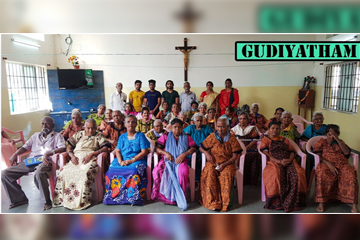
Home for the terminally ill - Burdwan
Since 2010, we have been working here in Chetana Community Care Centre (CCCC) at Jhinguti, Burdwan (West Bengal) serving the most vulnerable community of the PLHA (People Living with HIV/AIDS). This program aims at reducing HIV/AIDS related morbidity and mortality in adults and children, lessening the impact of HIV on children and women through prevention, treatment, care, and instilling God’s compassionate love. At present 20 destitute children affected by the disease are under our care.
Home for the physically challenged - Kodur
In our society with so many divisions on the basis of caste, creed and status, the handicapped are even more marginalized since they are dependent on others for the rest of their lives. Hence they are considered a burden to their families and sometimes a punishment for the family by God. Hardly 5% of the deaf, blind and the mentally retarded children get any facility for education in our country. The few specialized institutions cater mostly to upper class elite society are concentrated in urban areas. Keeping this in mind,we with a strong vigor work for the physically challenged children at Kodur.
Objectives of our deaf and dumb school at Kodur
- To love and include and cater to the needs of the disabled
- To accommodate the disabled children in our home and provide a chance to learn
- To improve their health and hygiene through medical checkup and treatment
- To give them speech therapy,which will facilitate the capacity of hearing.
- To create more leaders in future.
- To help them to be optimistic.
- To help them increase their self-confidence and self-esteem.
- To make them feel that they too are capable of climbing the ladder of greater heights.
- To create an atmosphere of acceptance and self-respect.
- To bring to the physically challenged a hope for the future.
- To give them psychological stability.
- To help the families to cope with the physically challenged member of the family and treat him/her with affection and respect.
- To bring out the best in the physically challenged and to help them develop the skills that they are good at.
04. SPECIAL SERVICES
01. Our Mission to Irular Community
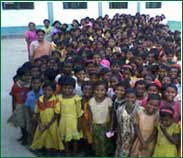
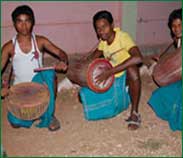
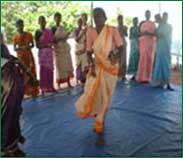
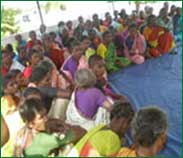
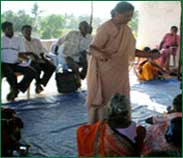
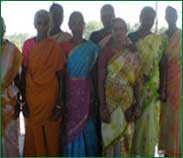
To uplift the life of irular, a committed group of sisters work at Villupuram. A movement called PazhangudiIrularKalviMembattuThittam has been initiated by them through which many irular children benefit every year. Our sisters are fully involved in educating them by the following strategies:
- Summer camp
- Residential School
- Sending children to other boarding for studies
- Guiding them to receive higher education and special coaching.
02. Prison Ministry
Our objectives in this ministry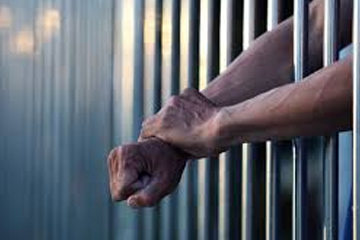
- To bring the prisoners from the dark cells
- To comfort them & bring solace.
- To uphold their lost dignity.
- To integrate them in the main stream of the society.
- To heal their brokenness.
- To enhance their disintegrated families
- To help them grow spiritually
- To inculcate good values
- To bring in reconciliation and settlement
- To mediate between prisoner and their family
- To provide legal aids
- To be united in compassionate relationship with the prisoners
- To listen to their pour outs
- To counsel their broken relationships
- To provide legal awareness
- To renew, release and rehabilitate
Our activities inside and outside the prison
- Visiting the prison in regular intervals.
- Helping the prisoner who asked us to communicate to their families through phone and visiting families of the prisoners.
- Taking efforts for reconciliation, compromise and settlement.
- Taking part in the Eucharistic celebration in the prison hospital twice in a week.
- Identifying the most deserving prisoners and helping them to come out in bail.
- Locating benefactors for financial assistance.
- Attending prison ministry India meetings on second Saturdays.
- Providing the medical facilities for the prisoners.
- Finding jobs for them and to live a new life in the society.
- Arranging for free legal aid.
LIST OF SOCIAL WORK CENTERS IN OUR CONGREGATION
| No | Place | Mission | Beneficiaries |
|---|---|---|---|
| 1 | Balichok | Boarding Home | Tribal Girl Children |
| 2 | Belphahari | Boarding Home | Tribal Girl Children |
| 3 | Burdwan | Home for Children | Children infected with AIDS |
| 4 | Bolarum | Hostel | School Children |
| 5 | Chethupattu | Boarding Home | Poor and Orphan Children |
| 6 | Chittoor | Hostel | Tribal (SC/ST) Girl Children |
| 7 | Christianpet | Boarding Home | Poor, Orphan, Tribal and Prisoners’ Children |
| 8 | Cleveland Town | Boarding Home | Prisoners’ Children |
| 9 | Dudhani - Dumka | Hostel | Tribal Girl Children |
| 10 | Dwarka | Prison Ministry, Ministry for Street Children | Prisoners and the Abandoned Children |
| 11 | Gudiyatham | Home for the Aged | The Aged |
| 12 | Gunadala | Boarding Home | Orphan, Semi-Orphan and Poor Girls |
| 13 | Kadappakkam | Social Work Centre | Dalit Women and Children |
| 14 | Kalakkampadi | Rural Women Development Centre | Tribal Women and Children |
| 15 | Kattupadi | Boarding Home | Orphan, Semi-Orphan, Poor and Tribal Children |
| 16 | Kilacheri | Boarding Home | Orphan, Semi-Orphan and The Poor Girl Children |
| 17 | Kodur | Residential School | Deaf and Dumb Children |
| 18 | Korukollu | Boarding Home | Orphan, Semi-Orphan and Poordalit Girl Children |
| 19 | Kurmun | Rural Women Development Centre | Tribal Women |
| 20 | Kumilanguzhi | Home for Children | Orphan, Semi-Orphan and Poor Girls |
| 21 | Kuttakadu | Home for Children | Tribal Children |
| 22 | Lalgudi | Typing and Tailoring Centre | Young Girls and Women |
| 23 | Mettagalli | Transit Boarding, Tuition Centre | The Young Children |
| 24 | Mettuguda | Boarding Home | The Abandoned Street Children |
| 25 | Nandyal | Hostel Boarding Home | College Girls and Poor Children |
| 26 | New Town | Hostel | The College Girls |
| 27 | NGGO Colony | Boarding Home | Prisoners’ Children |
| 28 | Parinagar | Rural Women Development Centre | The Rural Women |
| 29 | Pavagada | Social Work Centre | Dalit Women and Children |
| 30 | Peddakottla | Boarding Home | School Boys |
| 31 | Perungudi(Chennai) | Typing and Tailoring Centre | Poor Young Girls and Women |
| 32 | Punalvasal | Hostel | School Children |
| 33 | Rajgram | Boarding Home | Poor Tribal Children |
| 34 | Roshanagaram | Boarding Home | Orphan, Semi-Orphan and Poor Children |
| 35 | Sitheri | Social Work Centre and Evening Tuition Centre | The Poor Tribal Women and School Children |
| 36 | Telaprolu | Boarding Home and Social Work | Tribal Dalit Children and Poor Dalit Women |
| 37 | Thatchur | Tailoring Centre | Orphan, Semi-Orphan and Poor Children |
| 38 | Theresapuram | Rural Women Development Centre | Poor Dalit Women |
| 39 | Thirupathy | SC/ST Hostel | Poor Irular Tribal Children |
| 40 | Thondamanthurai | Home For The Aged | The Aged |
| 41 | Varadarajanpet | Hostel | The College Girls |
| 42 | Velliavilai | Home for Children | Orphan, Semi-Orphan and the Poor Girls |
| 43 | Vellore | Working Women Hostel and Tailoring Centre | Working Women and Poor Women in Ariyur, Malaikodi |
| 44 | Villupuram | Social Work Centre | Tribal Women And Children (Irulars) |
Social work ministry by our sisters in overseas
In the following places, our sisters do social work:
01. In Australia
(i). KWY (KornarWinmailYunti) and Aboriginal Family Support Services:
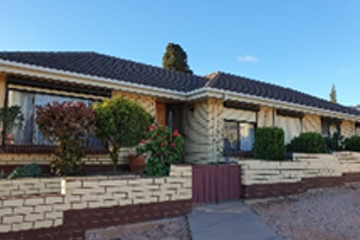
Our sisters assist women to come together to the KWY Organisation after being released from prison to empowerand rebuild their families and communities by raising awareness through events, documentaries, reconciliation week programmes and developing their skills.Through this Organisation, twice a week, our sisters educate the women on their safety and well-being. When they are on parole, sisters link with legal aid for appointments and accompany them to the court, transporting women to other services such as hospitals, stores, Salvation Army and Vinnies, etc,and directing former inmates seeking housing and basic needs to Organisations such as Vinnies, Centacare and Housing SA. Our sisterspromote the use of reducing, reusing and recycling as well as encouraging women to utilize natural medicine (from the bush) and healing meditation through their dot paint art.
(ii). Ministry to Aboriginal Men
Sisters assist men in transitioning houses through the Kokatha Organisation. These persons have been freed but are being held in transitional homes until they can be returned to their families.The ultimate goal is to reintegrate the persons into society and reduce the likelihood of recidivism. Our Sisters work with them to provide spiritual support and to assist them realize the importance of being connected to their family and community with love, care, and concern for them. Our sisters help people embrace themselves and transform so that they may be accepted by society and their families. Despite their feelings of shame and guilt as a result of their actions, the sisters engage them in various activities, games, prayer and one-on-one discourse to develop their faith, increase their hope, and foster family spirit.
(iii). Prospering after Prison Project (To provide the Aboriginal women with the necessary help to build personal and financial resilience after prison)
Women suffer greatly on a mental, economic and emotional level. Each year, up to 20 Aboriginal women are assisted in the development of personal resilience, financial resilience, living skills, cultural healing, and community connection. By assisting these women, our sisters support the entire family and ensure a productive and integrated living.
(iv). YCW (Young Christian Workers)
The young workers have relocated from their home nation in pursuit of a career as well as further education. The stress at their workplaces with respective agencies and with their colleagues is just too much for them to endure and they have no one else to communicate with. So, they come together to express their stress by discussing, analysing and integrating the group’s positive attitudes and ideas. Our sisters involve themselves with their sharing and journey regarding how to be optimistic and embrace their God-given capabilities to help the needy by transforming their stress into making things well and focusing their attention on the vulnerable. Our sisters guide people on their path to rediscover their values, convictions and faith, reset their lives through conversations, analyse their experiences and re-energise themselves with a positive ambiance and so return to society through constructive actions.
02. In Italy
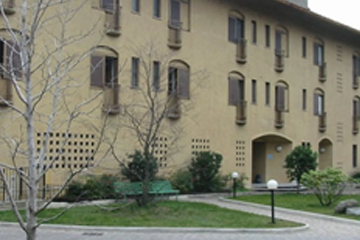
In Europe, there is an increasing number of elderly people who decide to live in residential homes. There is a need to care not only for their physical health but also for their psychosocial aspects. Very old individuals living alone are often depressed. Also, the individuals experience depression in residential homes. Older persons have significant needs that cannot be met by psychotherapy, social work, or other disciplines. Elderly people need a religion, meaning, love, belonging, morality, etc. Here are the few ways our sisters in Civate minister to the aged in Christ’s name:being a listening friend, offering hope and encouragement, facilitating them to involve in spiritual activities and rendering the ministry of prayer.
03. In Spain
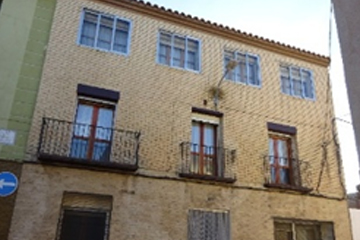
The strength of our aged home at Novillas is 23. Now, 23 elderly people are living in this aged home and eight of them with a high degree of dependency. This ministry is 24 hours ministry. Our sisters are the responsible persons and direct caretakers of these old people.
Until a few years ago, the residents of the town in Zaragoza and in and around the village Novillas never thought that the future of their elders would depend on our sisters coming from a city in southeastern India. Today, by contrast, they cannot imagine a life without each other. Our sisters arrived at Novillas nine years ago now, in the summer of 2013. At that time, the future of the aged home was in danger and its Mayor José Ayesa tried at all costs to find an entity that would take charge of it. All his efforts were in vain. “Since it is a small village, the accounts did not come out and everything was a problem,” says this Mayor who is still in charge of the Mayor’s Office. It was then that our sisters appeared with a great vocation to serve and help others. The whole issue of culture, management and paperwork scared our sisters in the beginning, but many people helped them a lot and gave them a lot of encouragement.